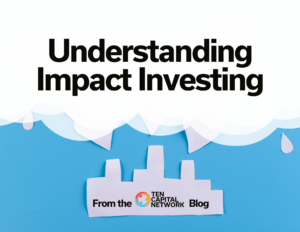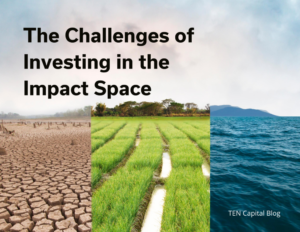
Understanding Impact Investing
2 min read Impact investing seeks to fund startups with social or environmental benefits. Impact companies have the intent of providing social or environmental aid

2 min read Impact investing seeks to fund startups with social or environmental benefits. Impact companies have the intent of providing social or environmental aid

1 min read According to a Harvard Business Review study on increasing diversity in venture capital partnerships, the more similar the backgrounds shared by the

1min read When it comes to impact investing, the truth is this: It’s harder to invest in the impact space than in the traditional venture